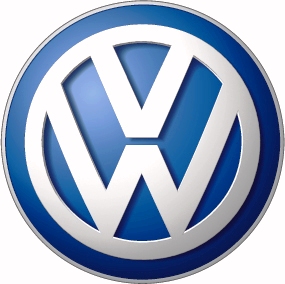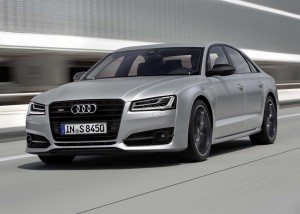Volkswagen investors raced to sell off their shares again Tuesday as new revelations raise the specter that the maker’s already severe diesel emissions cheating scandal could grow worse – and far more costly.
By midday, European time, shares of Volkswagen AG were off about 3.5%, after plunging by 5% at the opening of the day. At the current level, around $109, shares in the German giant will be off by nearly 60% from their peak of $255.20 last March 16th, and the $167.80 they were trading at on September 17th, the day before the EPA first documented Volkswagen’s cheating.
Yesterday, the U.S. Environmental Protection Agency alleged VW had used a similar approach on a different diesel engine used in luxury cars such as the Porsche Cayenne and Audi A6 – a charge VW denies.
That comes six weeks after the EPA first reported that VW had installed a so-called “defeat device,” software code designed to allow vehicles with its EA-189 diesel engine pass emissions tests, even though they might produce up to 40 times more smog-causing NOx in real-world use.
“We have clear evidence of these additional violations,” said EPA’s Assistant Administrator for Compliance Cynthia Giles, alleging that the additional subterfuge involved a 3.0-liter V-6 diesel used in various high-end VW, Porsche and Audi models.
For its part, the automaker issued a statement saying, it “wishes to emphasize that no software has been installed in the 3-liter V-6 diesel power units to alter emissions characteristics in a forbidden manner.” The maker added that it will “cooperate fully with the EPA to clarify this matter in its entirety.”
(Click Here for more on the latest allegations.)
While the original cheating affects about 482,000 diesel models sold in the U.S., the latest incident, if confirmed, would involve only about 10,000. The German company, now the world’s second best-selling automaker, quickly confirmed the problem with its 2.0-liter diesel engines, reporting it involved about 11 million vehicles sold worldwide. There are yet no hard numbers as to how many vehicles might be impacted by the latest revelation, if verified.
The new scandal appears to have reason to shake investors’ nerves. VW has already set aside $7.3 billion to cover the eventual costs, which would include repairs to those 11 million vehicles, as well as potential civil and criminal penalties. Last week, a special administrator was appointed in the U.S. to help consolidate more than 300 lawsuits against Volkswagen on behalf of its diesel customers.
But the maker also faces the possibility of criminal sanctions and fines by the U.S. Justice Department, and up to $18 billion in penalties from the EPA for violating the Clean Air Act. The violations involving the 3.0-liter diesel, if substantiated, would add nearly $400 million more to that latter total.
Several legal experts have told TheDetroitBureau.com that the government is likely to look less favorably at any settlement proposal should it appear VW’s cheating is more widespread than the original incident – which Michael Horn, CEO of Volkswagen Group of America, told a Congressional Committee was just the result of a rogue effort by “a couple software engineers.”
(GM gets independent monitor to assure compliance on safety standards. Click Here for the latest.)
Threatening to further tarnish the carmaker’s image, VW last week agreed to an outside audit of the crash injuries and fatalities date it provides the National Highway Traffic Safety Administration under the Early Warning Report, or EWR, system. While national data suggest fatalities in VW vehicles run about average on a per-vehicle basis, VW told NHTSA it had barely 10% of the industry average in deaths and injuries.
NHTSA has heavily fined automakers including Fiat Chrysler and Honda for under-reporting their own data during the last year.
Since the first diesel cheating was revealed in mid-September, about 20 billion Euros, or $22 billion, of shareholder value has been wiped out.
The latest EPA report is “raising concerns around reporting, transparency and integrity within VW,” according to analyst Arndt Ellinghorst of Evercore ISI.
(Ambitious Alfa Romeo scales back global growth plans. Click Here for more.)


